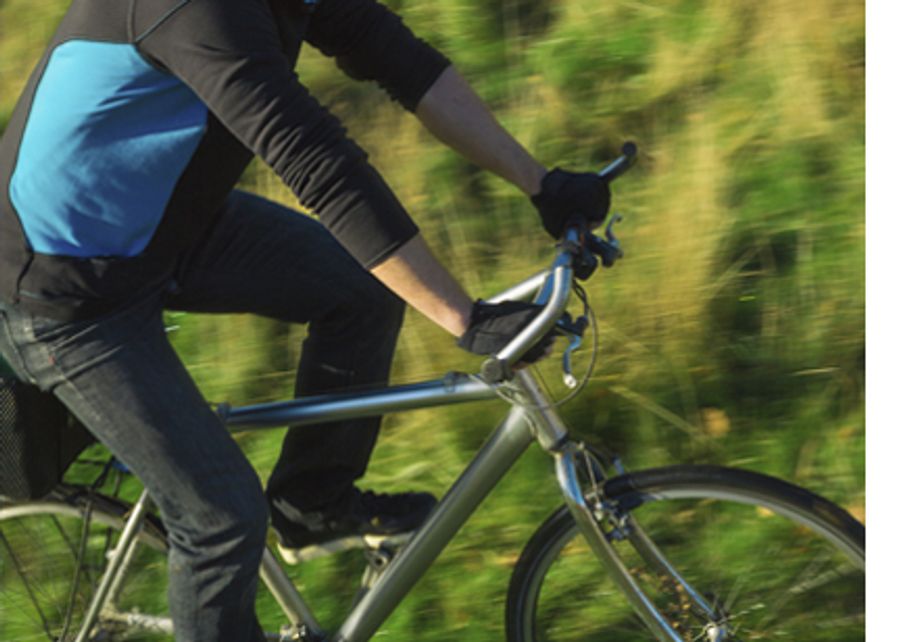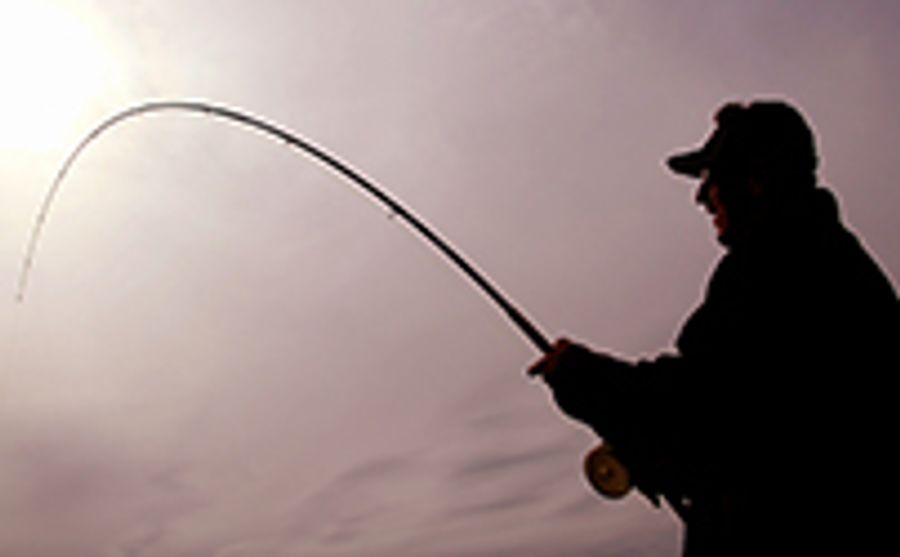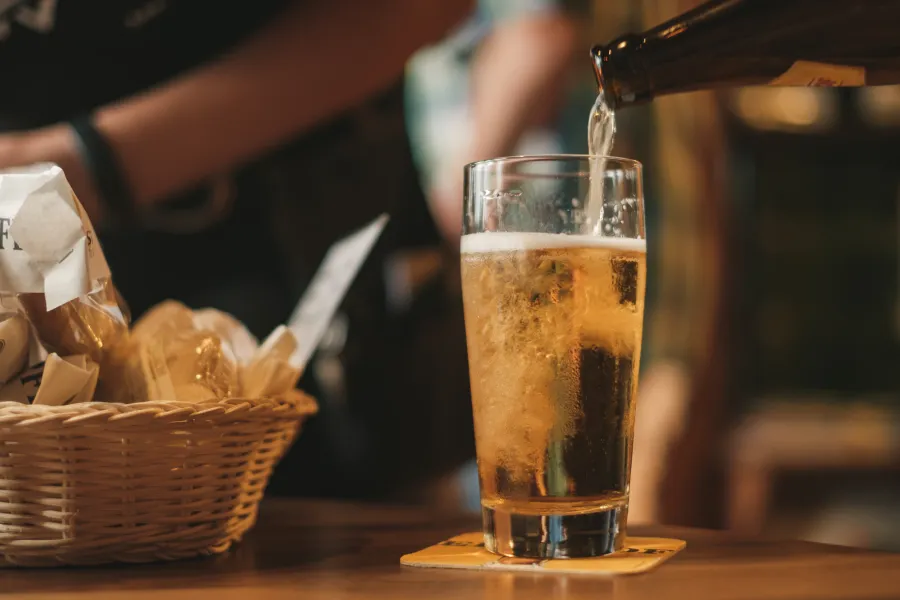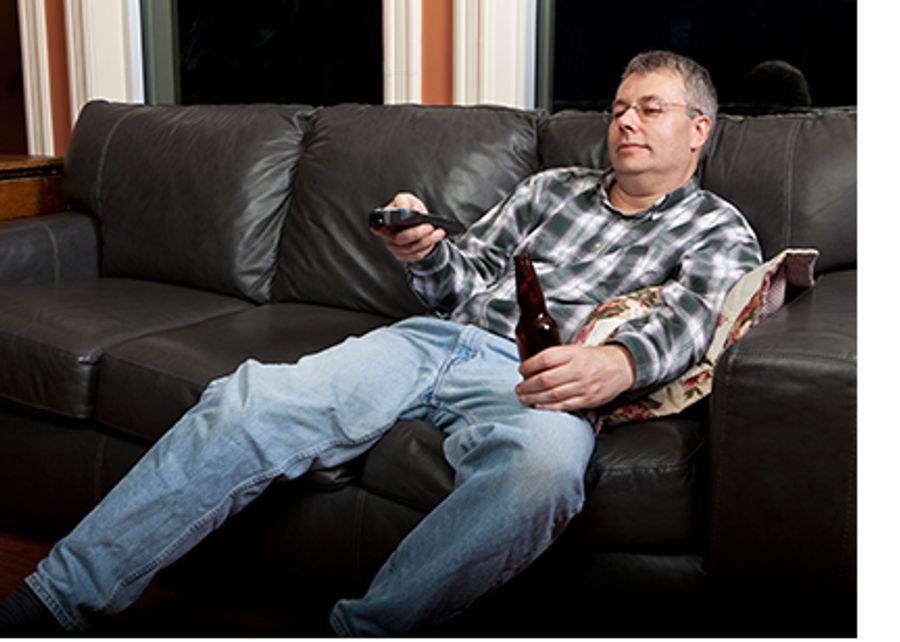Lifestyle Tips for High-Performing Railroaders
Manage your sleep, naps, caffeine, and exercise to stay awake, alert, and confident on the job.
Manage your sleep, naps, caffeine, and exercise to stay awake, alert, and confident on the job.
~ 4 min read

Caffeine stimulates both brain and body. It can improve concentration and increase alertness. How do you get the biggest boost? Use it strategically.
Coffee, tea, soda, and energy drinks are familiar sources of caffeine. Decaffeinated coffee, energy bars, and other common foods and beverages contain caffeine, too.
Many railroaders consume energy drinks to boost alertness. These drinks come in different serving sizes and contain widely varying caffeine amounts. Some have more than three times the caffeine found in a cup of brewed coffee.
Energy drinks have been associated with potential health problems. Their higher caffeine content may trigger symptoms including a fast heart rate, irregular heart rate and palpitations, higher blood pressure, increased urine production, and sleep disturbances, including insomnia. If you use energy drinks, be aware of these possibilities, and stop using them if such symptoms arise.
Many other products contain caffeine, as well. It’s found in chocolate, for example, although only in small amounts. You can consume caffeine in pill form and even in chewing gum. Medications commonly prescribed for high blood pressure, colds, and pain may contain caffeine with side effects such as nervousness and irritability.
The U.S. Food and Drug Administration issued warnings in 2014 about powdered pure caffeine marketed directly to consumers. A single teaspoon of pure caffeine is roughly equivalent to the amount of caffeine in 25 cups of coffee. At least one death has been attributed to an accidental overdose of this powerful stimulant.
Following are general caffeine content ranges for the most common caffeinated drinks. You may want to learn the specific amount of caffeine in beverages and other products you enjoy, so you can manage your caffeine use.
| Beverage | Black tea, brewed | Coffee, brewed | Coffee, decaf | Coffee, instant | Energy drink | Energy drink, shooters | Soda, caffeinated |
|---|---|---|---|---|---|---|---|
| Caffeine mg (range) | 40-120 | 85-200 | 3-12 | 27-173 | 43-300 | 80-286 | 34-71 |
| Size | 8 oz. | 8 oz. | 8 oz. | 8 oz. | 8 oz. | N/A | 12 oz. |
The activating effect of caffeine depends both on the amount you consume and your individual response. Some people feel energized after a few sips, while others say consuming substantial amounts has little effect.
Moderate amounts of caffeine—up to 400 mg in 24 hours—have not been found harmful in most healthy adults. If you consume more caffeine than you normally do, you may find it makes you feel jittery and irritable, disrupts your sleep, upsets your stomach, makes your heart race, and causes muscle tremors.
Use just enough caffeine to keep yourself feeling alert and energized. That way, when you need an extra boost, you’ll get that benefit from a modest additional dose.
Most people start to feel the alerting effects of caffeine in 15 to 30 minutes. Caffeine boosts alertness for as long as six to seven hours in many people, and even longer in some.
If you get sufficient sleep, caffeine at breakfast will do little to boost your alertness. Most people feel foggy upon waking up. This sleepiness may take 10 to 30 minutes, and perhaps longer, to fade. Alertness normally rises within an hour of awakening. To maximize benefits of caffeine later in the day, skip coffee at breakfast, or drink decaf if you like the taste of coffee at that meal.
About eight hours after you awaken, expect a dip in alertness due to your body clock. This is a good time to enjoy a cup of coffee or other caffeinated drink. You should feel its alerting effects.
After about 12 hours of wakefulness, consider what’s ahead in the rest of your waking day. If you need to stay alert on the job, caffeine can decrease the drive to sleep that has been building since you woke up, and help you stay awake longer. However, if you can manage without the caffeine, skip it. Caffeine within four to six hours of bedtime usually lightens sleep, awakens you more often, prompts bathroom visits, and shortens overall sleep time. Some studies suggest that caffeine within six hours of bedtime can rob you of an hour of sleep.
I feel best when I exercise, nap, have lunch, and then consume some caffeine. I need to be alert when I go back to work.
If you are drowsy when you leave work, drink a cup of coffee, and take a short nap before driving home. Coffee? Then a nap? That may sound odd, but it works.
The trick is to lie down right after you consume the coffee, and nap for 15 to 20 minutes before the caffeine kicks in. When you awaken, you should feel more alert and energetic than you did before the nap.
Drinking coffee before driving home is the one exception to the “avoid caffeine near bedtime” rule. If you still feel drowsy after napping, do not get behind the wheel. Take a taxi, or get a ride from someone else.
The National Highway Traffic Safety Administration estimates that 100,000 police-reported crashes in the United States each year result from driver fatigue. These crashes cause an estimated 1,550 preventable deaths and 40,000 nonfatal injuries annually. Don’t become a statistic. Do not drive when drowsy.
~ 2 min read

We all have good and bad habits. By focusing on the good, and trying to give up the bad, you can improve your sleep and overall health.
Maintain a healthy weight to reduce your risk of developing numerous illnesses, including obstructive sleep apnea, high blood pressure, heart disease, and diabetes. Learn more about healthy eating at the U.S. Department of Agriculture’s website, www.ChooseMyPlate.gov, and nutrition.gov.
Prepare healthy meals and snacks at home and on-the-go. Make a cheese and chicken or turkey sandwich on whole-grain bread for lunch or dinner, for example. Include a salad and fruit. When you work long days, it’s easy to snack frequently on calorie-dense foods and beverages, such as candy, chips, and sodas. Try cut up peppers, celery, baby carrots, grapes, berries, or nuts instead. At the end your tour, even a grab-and-go pizza can be a healthy option, if you get veggie toppings, and cut the cheese. Choose a light bedtime snack, such as fruit, cereal, or a handful of nuts.
Exercise regularly to keep your weight down, enhance fitness, and improve both sleep and mood. If you can, make exercise a daily habit. Run or lift weights after breakfast to get your body going, and find ways to add extra steps to your day. If you’re away from home overnight, try to take advantage of your hotel’s exercise room. If that room normally is closed at night, ask the hotel manager to arrange access for you.
If you smoke, get serious about stopping. Smoking harms your health, and that of people around you exposed to your tobacco smoke. Because nicotine is a stimulant, smoking likely disrupts your sleep, too. If your company offers a smoking cessation program, take advantage of it. If not, try to find a program in your community on your own.
Four years ago, I weighed 240 lbs. I changed my diet, and started working out. Now I take beef jerky and fruit for snacks. It took a year to drop 40 pounds. I now weigh about 192 pounds. I have been able to maintain this weight.
~ 2 min read
If we’re stopped, and if it’s nice out, I’ll get out and walk around little bit just as long as the conductor knows – hey I’m gonna be out here walking around for a few minutes, and get the blood flowing a little bit.
Learn to tell time on your body clock. Then use body time to organize your day.
People with regular wake up times and bedtimes usually know the approximate time they will start to feel drowsy. People with irregular work and sleep hours have to work harder to recognize sleepiness clues. Watching your body clock can help.
The hours you have been awake play a critical role in controlling your alertness and sleepiness over the day. Make a habit of tracking the number of hours you have been awake. When did you wake up today? How long have you been awake now? Find out about your own body’s sleep drive, and check your sleep debt.
Learn to tune in to your body’s warning signals. After you stay awake for 12 hours or more—especially if you did not sleep enough in your last main sleep period—ask yourself: Is my mind wandering? Am I yawning? Do I feel chilly? Am I nodding off?
These clues mean you need to ramp up efforts to stay alert: If possible, turn on some bright lights. Get up and stretch, move around, and talk with co-workers. Take a nap if you can—no more than twenty to thirty minutes—or consume caffeine, if the time is right. These tactics may boost alertness temporarily, but they are not a substitute for adequate sleep. Aim to make up lost sleep as soon as you can.
After being awake for 15 to 16 hours, everyone needs sleep. If you must stay awake beyond that range, remember that your alertness likely will be down. Take steps necessary to assure your safety. Go to sleep as soon as you can.
~ 3 min read
Even short naps—20 to 30 minutes—can help restore alertness, enhance performance, boost concentration, improve reaction time, and benefit manual dexterity. Take advantage of nap opportunities when you can.
Try to avoid sleep inertia. Upon awakening, people often feel both mentally groggy and clumsy. This sensation, called sleep inertia, usually lasts about 15 to 30 minutes, but sometimes lasts longer. A large sleep debt, awakening from deeper stages of sleep, or awakening during the very early morning hours (3.g., 4-6 am) when your circadian clock is at a low point are all associated with longer sleep inertia.
If you need to work or drive soon after you awaken, sleep inertia could put you at risk of being injured or making poor decisions.
Consider post-nap activities before you snooze. If you feel groggy when you awaken, drink a caffeinated beverage, or chew a piece of caffeinated gum to help restore your alertness. Don’t return to work or drive until you feel mentally and physically ready to do so.
Nap in sidings, if your company permits that.
Nap during breaks or limbo time if you can. If not, then stand up and stretch, jog in place, or walk around to enhance alertness.
Snooze in the crew van, if possible.
**Add an eye mask and earplugs to your work kit to help you sleep more soundly anywhere, night or day.
Improve your commute. If you drive 30 minutes or more each way to work, you’re adding at least an hour to your work day. Explore public transportation and carpooling to reduce this stress. If you leave the driving to someone else, try to grab a short nap en route.
If fatigued after work, nap before you head home. Don’t drive when drowsy.
Go back to sleep after you receive your call for work, if you can. Set your alarm for 30 minutes or so, and pull up the covers.
Nap before you start work. If you have been awake for several hours before you get a call to work, anticipate that your alertness will decline before the end of your tour. Jump-start your battery with a nap before you head in. Taking a nap before work and consuming caffeine early in your shift, particularly if you must work at night, can help boost alertness on the job.
Take a recovery nap to make up for lost sleep. If you are sleep deprived, pay back at least part of your sleep debt with a nap of three hours or more.
Try to start your nap about eight hours after you awakened. This is a normal downtime in the waking day. Sleep at this time is less likely than sleep later in the day to interfere with your usual longest sleep episode.
If you typically spend your days off catching up on sleep, you need more sleep on workdays. Try to even out your daily sleep dose.
Take an emergency nap if you start drifting off. Don’t put yourself or others in danger. Ask for relief if you need it.
Note: Not all railroads approve on-duty napping. Check with your supervisor.
~ 3 min read
When there are family events, if it's something really, really important, I'm there. The oldest grandson's graduation, I managed to be there. I got home literally less than two hours before the ceremony. I took a quick shower, got ready, and off to the graduation we went.
You work hard to contribute to giving your family a good life. Take time to enjoy the benefits of your work with those you love most. Communicate your needs, such as prioritizing sleep, to them and make an effort to understand their needs, too.
Participate in as many family events as you can. Enjoy birthday cake at breakfast, if that’s the only time that day you’re available.
If you have to work on a holiday, try to celebrate with your friends and family on a day that you’re free instead.
If you can’t attend children’s sports activities or other school events, ask your spouse or partner to snap photos or take videos you can look at with the kids later.
Keep lines of communication open. Put a family calendar and bulletin board in the kitchen, with a box nearby for items that can’t be hung on the wall. Encourage everyone to post notes, drawings, homework, newsletters, cartoons, and other family-interest items here. Refresh the bulletin board once a week, if you can, so it remains a “go to” spot.
Try to distribute household chores fairly, so neither partner feels unduly burdened. Keep a job list by the bulletin board, so it’s clear who’s responsible for taking in the car for a tune up, or repairing a broken screen. Expect children to take on suitable family chores at various ages, too.
Encourage your spouse or partner to attend parties and other social events with friends and family, even if you have to work or sleep, and can’t go along.
Make time for “dates” with your spouse or partner, even if it’s just to watch a favorite TV show, or share a pizza. Put those events on the calendar, too.
Spend time with each child separately on days off. You may be surprised at all you learn on a ten-minute walk, or over a dish of ice cream. Ask children which activities they’d like to do with you. Tell children about what you do at work.
Plan for a family vacation. It’s nice to have a long-term goal. Talking about the trip in advance can build excitement.
Tell your family you appreciate their support. Having your family’s understanding and support can help you get the sleep you need to stay alert at work. It’s hard for you to miss family events, and hard for them to enjoy those activities fully without you there. Let your family know you appreciate the difficulties they experience in helping you do your job.
~ 3 min read

On a railroader’s schedule, it’s often hard to plan activities in advance. Your free time may be out of sync with that of family and friends, or you may need to prioritize catching some Zzzs.
When you do have time, there are plenty of activities you can do on your own. You can enjoy many of them at any time of day, and start—and stop—them when convenient.
Participate in sports, challenge your brain, learn new skills, read a novel or non-fiction book.
Doing things you like reduces stress, benefits body and mind, and improves overall well-being.
Exercise: Take a walk. Go for a run. Indoors, do jumping jacks, push-ups, and crunches. You don’t have to choose between exercising and enjoying other leisure activities. Stretch, jump rope, or pedal a stationary bike while watching television. Listen to music or books on tape while you work out. Explore yoga and meditation, two techniques that help reduce stress. There are many workout apps available that can also help guide your exercise.
Get away when you can. Would a day of fishing serve as respite? Hunting with your buddies? How about a round of golf? When opportunities arise, take advantage of them.
Take an online class. Online instruction is more flexible than that in traditional classrooms, making it more likely to fit into a railroader’s lifestyle. Would you like to know more about aquariums, bird watching, drawing, gardening, taking photos, playing poker, or woodworking? Would you like to learn to type, play the guitar, or speak another language? Search for free instructional videos on YouTube or check out Coursera for free online classes, with lectures and videos provided by noted professors at leading universities.
Keep a journal. Writing down thoughts and feelings can help ease daily worries, and remember topics you may want to discuss later with those close to you. Tuck a small notebook into your pocket or grip, and jot down whatever’s on your mind when you have time.
Improve your yard or garden. Sure, you sometimes need to cut the grass or pull weeds. You may get more pleasure out of rearranging plantings, putting in a brick or stone pathway, adding a fire pit for cookouts, or building a sandbox for the kids.
Keep a project going. Build a birdhouse, engage a child, spouse or partner in completing a 1,000-piece puzzle, knit a sweater. Find a place to stash projects in process so they’ll be undisturbed until you return to them, yet easy to take up again.
While you commute, listen to music, audio books, or podcasts. Or just use the quiet time to think about whatever matters currently are front and center in your life.
At a stoplight: In just a minute or two, you can contract and relax neck and shoulder muscles, and more. Make a game of it. Simple stretches can help you unwind after work, too.
Wait time: While you wait to pick up children, friends, or family members, to see your doctor or dentist, or even to get a haircut, read or listen to music on your phone or another device. Carry a small notebook to write down reminders, or check off items on your “to do” list. Do Wordle, crossword or number puzzles. Take a nap if you can.
~ 3 min read

Though many use alcohol to help initiate sleep, alcohol has a pervasive negative impact that ultimately makes this practice counterproductive. Even small amounts of alcohol leads to greater sleep fragmentation and awakenings in the early morning hours, reducing total sleep time. Alcohol also causes changes to sleep architecture. Rapid eye movement (REM) sleep is reduced at all doses of alcohol. REM sleep is most commonly known for it’s role in memory and is also critical for a number of other biological processes. Chronic alcohol users often report extremely vivid dreams once they are able to resume sleeping normally - these vivid dreams are a result of the rebound in REM sleep after prolonged REM sleep deprivation. Alcohol use has also been associated with insomnia and worsening of obstructive sleep apnea symptoms. We recommend limiting alcohol consumption to one to two drinks per day, or less, and to avoid drinking within three hours of bedtime.
The hormone melatonin is naturally secreted approximately 1 hour prior to your habitual bedtime. The secretion of melatonin marks the biological night. Supplemental melatonin can be purchased over-the-counter in drug stores or ordered online through sites such as Amazon. Melatonin may help to facilitate sleep onset or to sleep at an adverse circadian phase. This may make it useful for shiftworkers attempting to sleep during the day or for travelers attempting to adjust to a new timezone. While it is generally safe as a supplement, it is commonly sold in much higher doses than is naturally secreted by your body. Avoid doses exceeding 3mg and seek out sources of melatonin that have been tested for purity and concentration.
Railroaders have reported using other sleep aids, including medications labeled as PM for use at night, allergy medications, and others. Many of these medications use similar ingredients that have a side effect of drowsiness. A consequence of these medications is often a hangover-type effect, where detrimental effects of the medications are observed upon waking. We do not advise the use of these drugs to facilitate sleep.
Please talk to your doctor about any issues with your sleep. Most doctors do not ask about sleep and most patients do not discuss sleep issues with their physician. As a result, many sleep issues persist despite effective treatment options being readily available.
Nicotine is a powerful stimulant that is now available in a variety of forms and concentrations through smoking, vaping, chewing tobacco, using nicotine pouches, patches, lozenges, and other original products. Railroaders and public safety personnel commonly report using nicotine to maintain alertness. Nicotine has a significant impact on sleep. Its use is associated with decreased sleep duration, sleep quality, and slow wave sleep; as well increased sleep latency and sleep fragmentation. Thus, users of nicotine tend to take longer to fall asleep and experience more nighttime awakenings. As a result, users of nicotine often have shorter sleep duration and report that their sleep is not as restorative in comparison to those who do not use nicotine. We recommend avoiding nicotine in the hours prior to bed.
Medicines prescribed for attention-deficit disorders or shiftwork disorder should never be taken unless they are prescribed by your doctor and used as directed. This class of medications can make it hard to fall asleep and can cause other side effects, such as a racing heartbeat, high blood pressure, and depressed mood. Overdoses of these medicines can cause very serious health problems, including an irregular heartbeat, hallucinations, and even coma.
~ 2 min read

Alcohol packs a bigger wallop when you are sleep-deprived. Limit alcohol consumption close to when you plan to retire. It’s a myth that alcohol at bedtime benefits sleep. The alcohol burns off in a few hours, triggering awakenings. You may get just a few hours of sleep, then wake up, and not be able to return to sleep.
Eat breakfast, lunch, and dinner at appropriate times relative to your waking day. Regular meal times are better for your waistline, as well as your sleep. They program your brain to expect sleep at a predictable time.
Caffeine has differing effects at different times of day. Read more about how to time your caffeine consumption to limit the impact it can have on your sleep.
If you take prescription medications, make sure a healthcare provider knows about your work schedule. Some medications may make you sleepy. Others, including those commonly prescribed for high blood pressure, colds, pain, and asthma, may interfere with sleep.
Read handouts that come with new medications. Ask your healthcare provider or pharmacist to suggest times to take medications that maximize their benefits, and minimize their adverse effects on sleep and safety. Also ask if you should avoid alcohol, or other drinks or foods, when taking your medications.
If you take non-prescription medications or supplements, tell healthcare providers about these, too. Like prescription medications, some may make you sleepy, or disrupt sleep. In particular, migraine medications are likely to contain caffeine.
Even products advertised as “natural,” may have harmful effects on your sleep, or interact negatively with your other medications.
~ 1 min read

Mindfulness practices in organizational settings are becoming very popular. They range from multiple week training courses in Mindfulness-Based Stress Reduction to yoga practices, and various types of mediation-related micro-practices, including walking and sitting meditation, movement meditation, and mindfulness moments structured into on-going work activities. Mindfulness has become a billion dollar a year industry, with a vast number mindfulness-mediated activities such as online apps.
Mindfulness has been defined as paying focused attention to the present moment in a non-judgmental manner. Regular practice of mindfulness decreases rumination and emotional reactivity, thereby possibly improving sleep. A meta-analysis of clinical trials investigating the effect of mindfulness on sleep showed improvements in sleep quality, but most of the reviewed studies were in clinical populations including patients with cancer and insomnia.
Mindfulness has also been shown to reduce burnout, stress, anxiety and depression. Further, reduction in stress and anxiety may have a secondary benefit in improving sleep. In the post-pandemic global corporate wellness environment, more than half of US employers offer some form of mindfulness training to their employees. Common programs include online apps such as Calm or Headspace.
~ 1 min read

My friends know I'll call them on my days off. I know I need to be well-rested. Running a train is a big responsibility. I don't want to be tired on the job.
It may be harder to stay in touch with family and friends when your schedules don’t mesh—but it’s not impossible. Connecting with family and friends can help ease stress, boost mood, and enhance overall well-being.
Exercise with your buddies. Do you like to hunt? Play golf? Shoot some hoops? You may have to get creative with times of the day or days of the week. The benefits of maintaining strong personal relationships usually outweigh such inconveniences.
Call, text, or email family and friends regularly when you’re not working. A brief chat or note will help cement relationships.
Get together when you can, even if you meet at odd times of day. Maybe you can get together for breakfast or lunch instead of your usual dinner, or catch a movie in the afternoon instead of the evening.
Volunteer at your child’s school or in the community. Some schools have a “drop-in” parent policy. Your children will enjoy having you in their domain. Your local library, community association, or religious institution almost always can use volunteers to staff a desk, stuff envelopes, or handle other tasks.